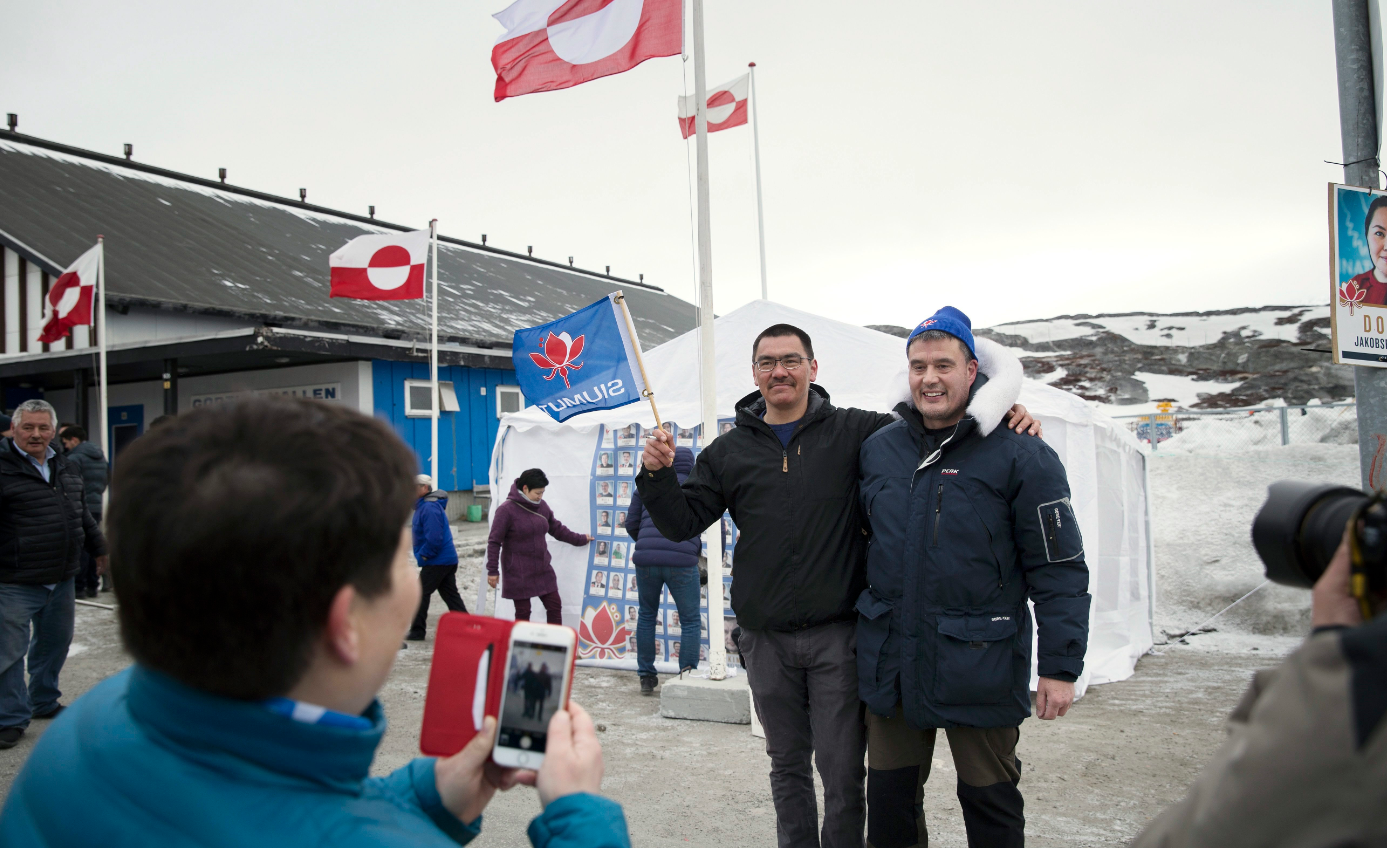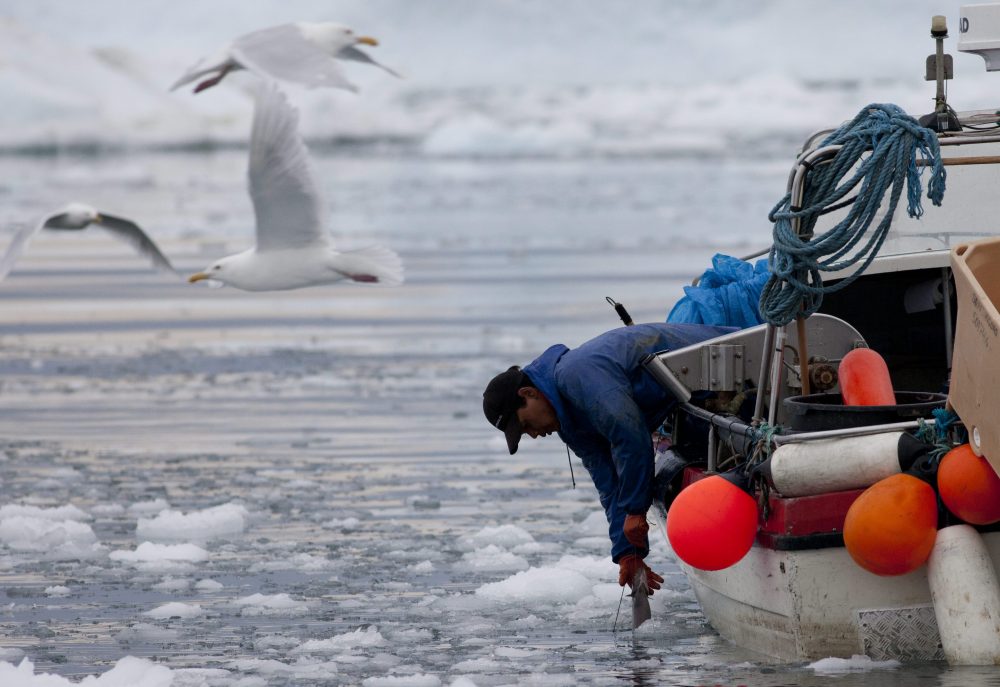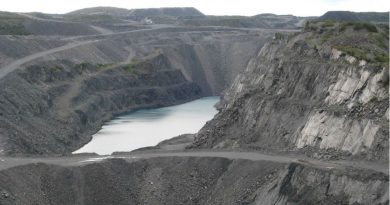Greenland braces for coalition talks to cut through election result murk

With Wednesday’s election result murk, the topsy-turvy world of Greenlandic politics is about to get a lot more interesting as the territory braces for coalition talks in the days ahead.
Greenlandic Prime Minister Kim Kielsen’s social-democratic party, Siumut, eked out the lead with 27.2 per cent of the vote. They were followed by the centre-left Inuit Ataqatigiit, lead by Sara Olsvig, with 25.5 per cent of the vote. The centre-right Democrats, lead by Randi Vestergaard Evaldsen, came in third with 19.5 per cent of the vote.
In all, the 31 seats in the Inatsisartut, Greenland’s Parliament, will be divvied up amongst seven different parties.
Siumut’s Kielsen headed the previous coalition government formed with Olsvig’s Inuit Ataqatigiit.
Arctic experts say they expect Kielsen to do the same this time around, but that the quasi-three way tie makes anything possible.
“It was a very close call,” said Martin Breum, a journalist, Arctic expert and author of the upcoming book Cold Rush: The Astonishing True Story of the new Quest for the Polar North.
“The very exciting part now is who will Kim Kielsen form a majority government with? It’s really up in the air. The choice of partners will tell us which way the Government of Greenland is headed.”
Independence, China, takes back seat
Although international English-language media coverage trumpeted the independence and Chinese-investment angles that dominated Greenlandic election cycles in the past, Arctic experts say it was local, on-the-ground issues that carried the day in the recent election campaign; things like education, construction of a new airport and the enlargement of two others.
“The main issues have been social welfare, economy, mining; things that relate to the building blocks of how to make a better economy for Greenland – very diverse and very down-to-earth issues, ” said Rasmus Leander Nielsen, an assistant professor at the University of Greenland’s Institute of Social Science, Economics & Journalism, in a phone interview with Eye on the Arctic from Nuuk.
Wedge-issue wild cards

Kielsen’s previous coalition government with Olsvig was only reached after the anti-uranium mining Inuit Ataqatigiit and the pro-mining Siumut agreed to put the issue aside. But Breum says that might not be the case this time around.
The Kvanefjeld site in southern Greenland has long been political minefield for the territory. It’s believed to hold an important resevoir of rare earth elements , materials used in everything from electronics to automobiles. Kielsen’s spent enormous political capital on touting the economic and job spin-offs of the potential project, while Olsvig has raised concerns on everything from the environment to the health impacts of the plan, as uranium mining would be a byproduct or exploiting the rare earth element site.
“It’s an explosive issue that, this time around, could alone hinder cooperation,” Breum told Eye on the Arctic over the phone from Kangerlussuaq, Greenland on Wednesday.
Other potential wedge issues include disagreement over fishing industry reforms, the reason Kielsen called Tuesday’s election in the first place.
“It’s up for grabs and we really don’t know what will happen,” said Nielsen.
“But I expect it will come down to focus on a single issue, or narrow topic. But will it be around mining? Will it be around fishing? Or will parties get together again and agree to disagree?
“That’s a lot of uncertainty, but that’s what makes Greenlandic politics really, really interesting.”
Full election results are available on Elections Greenland.
Write to Eilís Quinn at eilis.quinn(at)cbc.ca
Related stories from around the North:
Canada: Inuit perspectives crucial as Canada develops Northwest Passage says report, Eye on the Arctic
Finland: While West and Russia feud, council of hobbits quietly saves North, Blog by Timo Koivurova
Greenland: With Siumut’s re-election, will Greenland welcome Chinese investment?, Cryopolitics Blog
Iceland: Meeting in Iceland discusses banning unregulated Arctic fishery, Radio Canada International
Norway: The election that shook Arctic Norway – Labour Party hammered in North, The Independent Barents Observer
Russia: What does Putin’s re-election mean for Russia’s Arctic policy?, Radio Canada International
Sweden: Sweden’s government wants to boost “neglected” countryside, Radio Sweden
United States: Trump and Finnish President Niinistö talk Arctic over phone, Yle News



